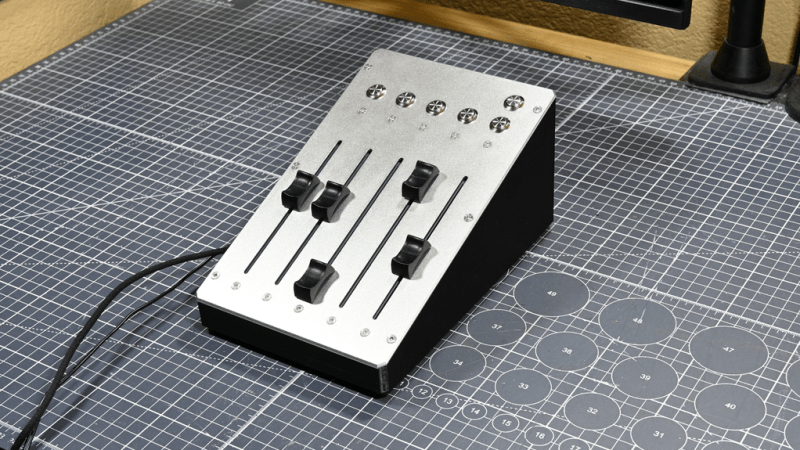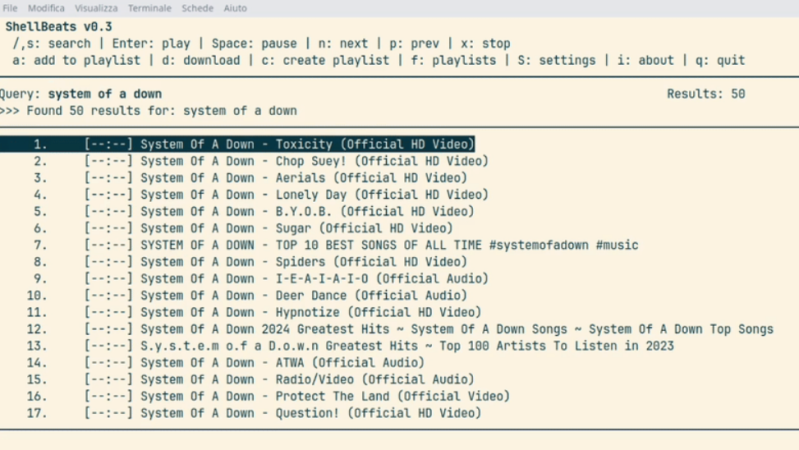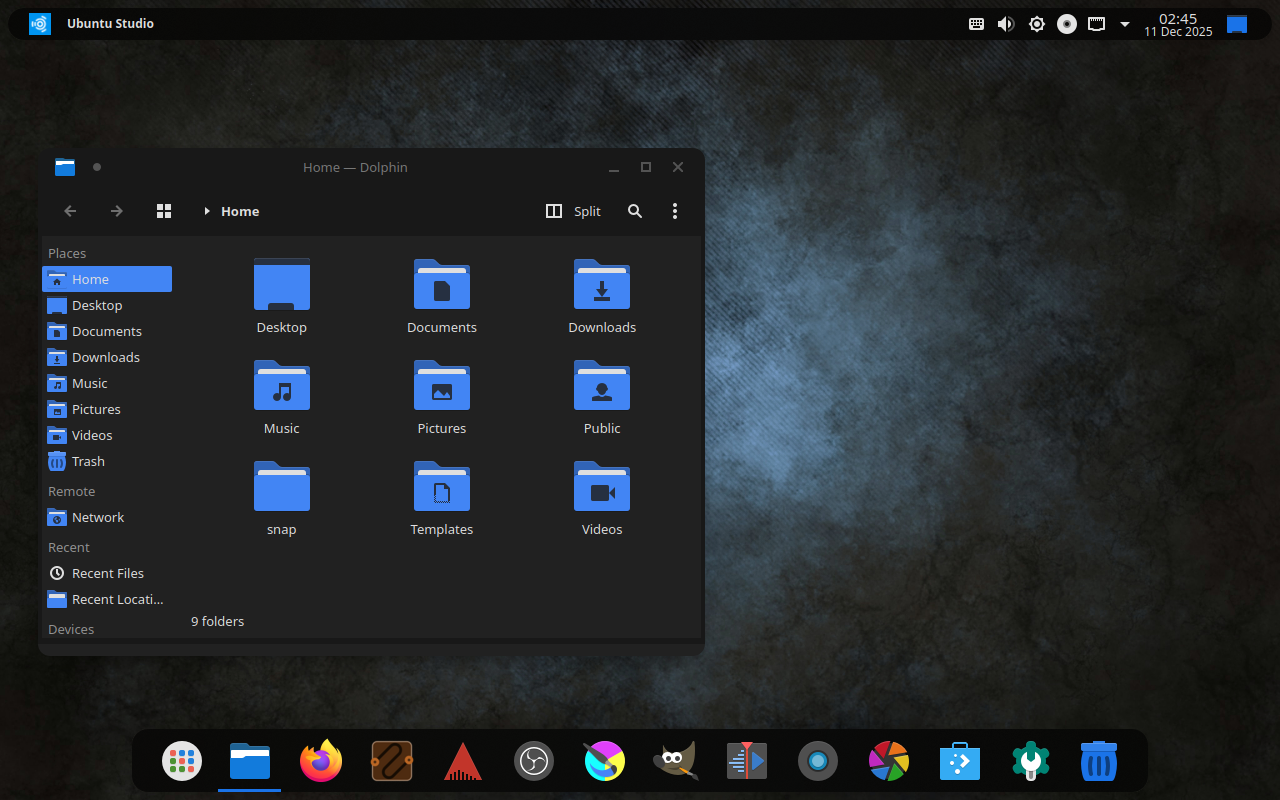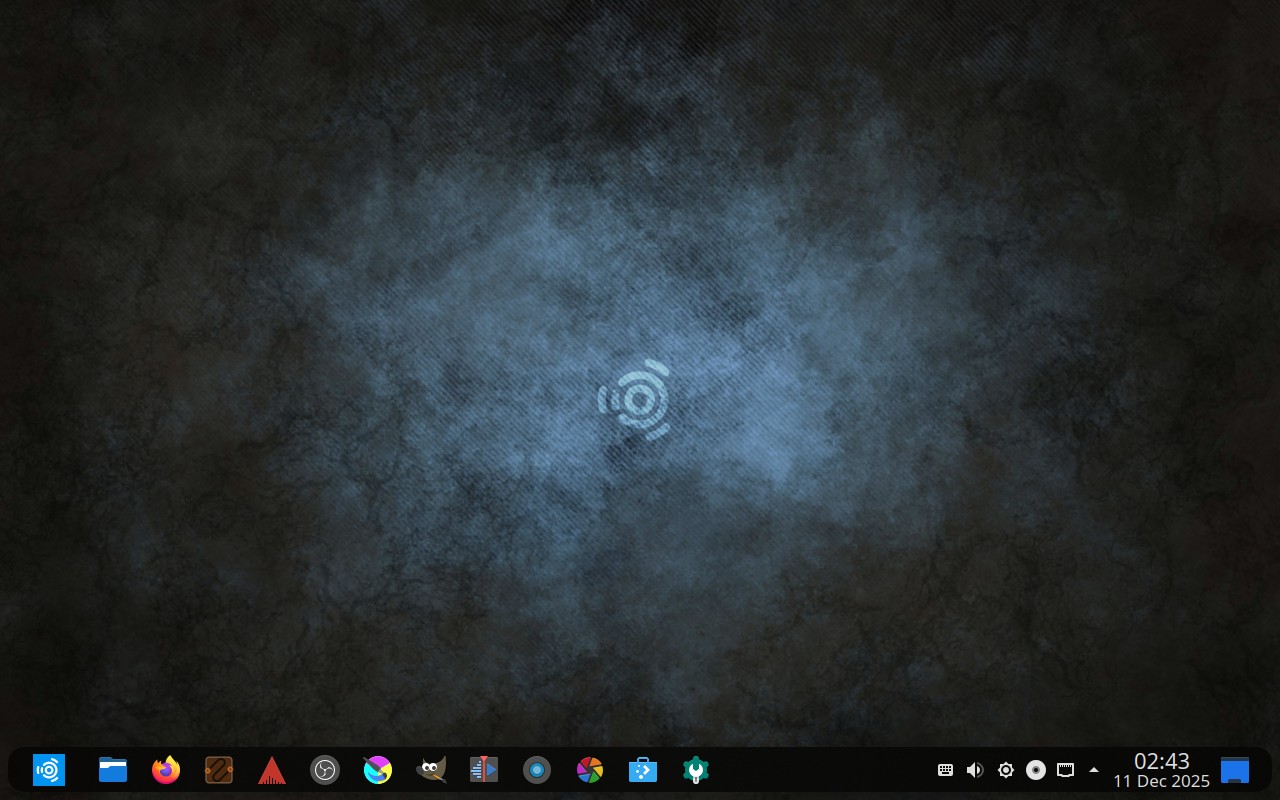Block 4 dialogues x performance protocols interventions at Toinen Kerros by Äänen Lumo (Nokiantie 2), #Helsinki on 13 and 14 February 2026
by herrsteiner (noreply@blogger.com) at February 01, 2026 09:03 PM

by herrsteiner (noreply@blogger.com) at February 01, 2026 09:03 PM


These days, Windows has a moderately robust method for managing the volume across several applications. The only problem is that the controls for this are usually buried away. [CHWTT] found a way to make life easier by creating a physical mixer to handle volume levels instead.
The build relies on a piece of software called MIDI Mixer. It’s designed to control the volume levels of any application or audio device on a Windows system, and responds to MIDI commands. To suit this setup, [CHWTT] built a physical device to send the requisite MIDI commands to vary volume levels as desired. The build runs on an Arduino Micro. It’s set up to work with five motorized faders which are sold as replacements for the Behringer X32 mixer, which makes them very cheap to source. The motorized faders are driven by L293D motor controllers. There are also six additional push-buttons hooked up as well. The Micro reads the faders and sends the requisite MIDI commands to the attached PC over USB, and also moves the faders to different presets when commanded by the buttons.
If you’re a streamer, or just someone that often has multiple audio sources open at once, you might find a build like this remarkably useful. The use of motorized faders is a nice touch, too, easily allowing various presets to be recalled for different use cases.
We love seeing a build that goes to the effort to include motorized faders, there’s just something elegant and responsive about them.


Generally, one opens a web browser or an app to use YouTube. However, if you’re looking to just listen to the audio, you can actually do that right from the terminal. You just need Shellbeats from [lalo-space].
Shellbeats is primarily intended for playing music from YouTube, and is well equipped for this task. It allows searching YouTube directly from the terminal, as well as streaming tracks or entire playlists from the command line interface. You can also make and edit playlists from within the tool, and even download the whole lot as MP3s if so desired. It’s all keyboard-operated and nicely lightweight. The overall experience isn’t dissimilar from operating a simple LCD-based MP3 player from 20 years ago.
There’s plenty of other fun stuff you can do in the terminal, too, as we’ve explored previously. If you’re working on your own media player hacks, be sure to notify us on the tipsline!

The GStreamer team is excited to announce a new major feature release of your favourite cross-platform multimedia framework!
As always, this release is again packed with new features, bug fixes and many other improvements.
The 1.28 release series adds new features on top of the previous 1.26 series and is part of the API and ABI-stable 1.x release series of the GStreamer multimedia framework.
Highlights:
For more details check out the GStreamer 1.28 release notes.
Many thanks to everyone who contributed to this release!
Binaries for Android, iOS, macOS and Windows will be provided in due course.
You can download release tarballs directly here: gstreamer, gst-plugins-base, gst-plugins-good, gst-plugins-ugly, gst-plugins-bad, gst-libav, gst-rtsp-server, gst-python, gst-editing-services, gst-devtools, gstreamer-vaapi, gstreamer-sharp, gstreamer-docs.

Tina Mariane Krogh Madsen is performing a streaming concert February 6th at Apo33 Audioblast festival:
Coming up: Tina Mariane Krogh Madsen will perform the piece vibrational difference # II (meditation on extractivism) at Audioblast #14 on February 6th. 2026. The festival is organized by Apo33:
Live en ligne et hybdride – “Hyperécoutes en réseau”
Online live – “Networked Hyper-listening”
Vendredi 6 février 2026 de 14h à 22h. Performances en direct via la plateforme de streaming d’APO33 et en multistreams, sur place à Apo33 (Psalette) avec places limitées (réservation obligatoire)
by herrsteiner (noreply@blogger.com) at January 22, 2026 01:31 PM

More, granular -- less random. That's the pitch from Fractiv, a new sampling granular instrument and effect from Sync Audio. Just when you thought you couldn't squeeze more ideas out of granular sound, they've got some smart ideas, including a more playable, precise interface, and grain-based modulation. Mac, Windows, and Linux. Here's a first look.
The post Fractiv wants to make granular sound easier to shape, sculpt, and play appeared first on CDM Create Digital Music.

As of January 15, 2025, all flavors of Ubuntu 25.04, including Ubuntu Studio 25.04, codenamed “Plucky Puffin”, have reached end-of-life (EOL). There will be no more updates of any kind, including security updates, for this release of Ubuntu.
If you have not already done so, please upgrade to Ubuntu Studio 25.10 via the instructions provided here. If you do not do so as soon as possible, you will lose the ability without additional advanced configuration.
No single release of any operating system can be supported indefinitely, and Ubuntu Studio has no exception to this rule.
Interim Ubuntu releases, meaning those that are between the Long-Term Support releases, are supported for 9 months and users are expected to upgrade after every release with a 3-month buffer following each release.
Long-Term Support releases are identified by an even numbered year-of-release and a month-of-release of April (04). Hence, the most recent Long-Term Support release is 24.04 (YY.MM = 2024.April), and the next Long-Term Support release will be 26.04 (2026.April). LTS releases for official Ubuntu flavors (not Desktop or Server which are supported for five years) are three years, meaning LTS users are expected to upgrade after every LTS release with a one-year buffer.

It's a patcher inside a patcher. And that patcher has more patches that you can copy, randomize, and sequence. And in that patcher is a ton of glitchy goodness. PatchSeq, hot off the grill from Jeremy Wentworth and Voxglitch, is something special.
The post PatchSeq puts a FM-filled, sequenced patcher inside your VCV Rack appeared first on CDM Create Digital Music.

A new version, SpectMorph 1.0.0-beta3 is available at www.spectmorph.org.
SpectMorph (CLAP/LV2/VST plugin, JACK) is able to morph between samples of musical instruments. A standard set of instruments is shipped with SpectMorph, and an instrument editor is available to create user defined instruments from user samples.
The new features of the 1.0.0 beta releases (compared to the latest stable version) are described in a YouTube Tutorial.
In the beta3 version, the instrument editor has a new pitch detection algorithm and support for mp3 files. Other than that, there were many smaller fixes, some of them addressing critical problems, so we recommend updating.
If you are interested in a detailed list of changes, you can look at the NEWS file.

The GStreamer team is pleased to announce another release of liborc, the Optimized Inner Loop Runtime Compiler, which is used for SIMD acceleration in GStreamer plugins such as audioconvert, audiomixer, compositor, videoscale, and videoconvert, to name just a few.
This release contains both bug fixes and new features.
Highlights:
Direct tarball download: orc-0.4.42.tar.xz.

This is a recap in blog form of the following Mastodon toot: https://mastodon.autostatic.net/@jeremy/115632831793380239
The biggest performance improvements when it comes to Linux audio you can do are in my experience:
The Ardour manual provides some great background information on these matters. CPU scaling governor and SMT are explained here: https://manual.ardour.org/setting-up-your-system/the-right-computer-system-for-digital-audio/. CPU DMA latency is explained here: https://manual.ardour.org/setting-up-your-system/the-right-computer-system-for-digital-audio/
All other recommendations that for instance rtcqs or Millisecond give are for those that really need stable, ultra low latency. So buffer sizes below 64 samples that result in round-trip latencies below 10 milliseconds. This is the area where threaded IRQs or disabling Spectre/Meltdown mitigations might contribute to getting rid of that stray xrun.
Regarding threaded IRQs, enabling those by itself doesn’t change anything. You will need to configure those threaded IRQs after you’ve enabled them. Tools that can do this are rtcirqus or rtirq. You could also do this manually by using the chrt command on the threaded IRQ process.
Modern systems use MSI(-X) interrupts though (Message Signaled Interrupts) so shared IRQs should be something of the past. On those systems there’s very little gain in prioritising threaded IRQs.
The main difference between rtcirqus and rtirq is that rtcirqus allows you to set the real-time priority of a thread based on ALSA card names. rtirq works differently, it sets the real-time priority based on kernel module names. So with rtcirqus you can be sure the desired audio interface gets the desired real-time prio, with rtirq you’re prioritising all the devices that make use of a specific kernel module (xhci_hcd, snd_hda_intel).
rtirq does allow for some finer grained control regarding USB2 ports and onboard audio devices that use the snd_hda_intel driver. The USB2 ehci_hcd driver and the snd_hda_intel driver add the bus name and card index number respectively to the IRQ thread process name so you can use that designation in the rtirq configuration file. In case of USB2 you’re still prioritising the IRQ of the whole USB bus though but then rtcirqus does the same.
Change-log:
Description:
Website:
Project page:
Downloads:
Git repos:
Wiki:
License:
Enjoy && Cheers to the New Year!
Change-log:
Description:
Project page:
Downloads:
Git repos:
License:
Enjoy && Happy NYE!

We’ve just tagged the current code as 9.0-rc2- this is the second release candidate for 9.0.
Notably, we are also announcing a string freeze, which means no text that appears in the program’s interface will be changed between now and the release of 9.0. This means that translators can get to work finalizing translations for 9.0 without worrying that there will be more changes to come.
We continue to be in a feature freeze until 9.0 is released - all development work will be on bug fixes and improvements to features already present. We anticipate at least one more -rcN tag before release.
Users interested in testing 9.0 and ensuring the best possible release are invited to test it out from the builds available on nightly.ardour.org (or self-build if you prefer). We would strongly request that no Linux distributions package this or any other release candidate - please wait for us to release 9.0. Please report issues on the bug tracker though design discussion on the forum are now acceptable (if not always ideal).
We are not yet finished with the release notes for 9.0, but to get an overview of what is in this release, you can take a look at the in-progress document . It will be revised and updated as we move through the release process.
Please note that there is still no release date scheduled for 9.0. We anticipate that a wider group of beta-testers will uncover new issues (both bugs and workflow/design issues) that merit fixing before the release.
Notable changes since 9.0-rc1 include:
43 posts - 13 participants

A lot of people have asked us why Ubuntu Studio comes with a panel on top as the default. For that, it’s a simple answer: Legacy.
When Ubuntu Studio 12.04 LTS (Precise Pangolin) released over 13 years ago, it was released with a top panel by default as that was the default for our desktop envirionment: Xfce.
Fast-forward eight years to 20.10 and Xfce was no longer our default desktop environment: we had switched to KDE’s Plasma Desktop. Plasma has a bottom panel by default, similar to Windows. However, to ease the transition for our long-time users, we kept the panel on top by default, resizing it to be similar to the default top panel of Xfce.

With 25.10’s release, we included an additional layout: two panels. One panel is on top with a global menu, and the bottom contains some default applications, a trash can, and a full-screen application launcher. This is a way to feel familiar to those with a similar layout from where they may be coming from, being an operating system for creativity: macOS.

Starting with 26.04 LTS, we’ll also include one more layout: a bottom, Windows 10-like layout. This is to ease the transition for those coming from Windows, and due to popular request and reports.

It has been 13 years since we defaulted to a top panel, but is that the right idea anymore?
Right now, on the Ubuntu Discourse, we have a poll to decide if we should change the default layout starting with 26.04 LTS. This will not affect layouts for anyone upgrading from a prior release, but only new installations or new users going forward.
If you would like to participate in the poll, head on over to the Ubuntu Discourse and cast a vote!
We’ve just tagged the current code as 9.0-rc1 - this is the first release candidate for 9.0.
We are now in a feature freeze until 9.0 is released - all development work will be on bug fixes and improvements to features already present. We anticipate at least one more -rcN tag before release (possibly several), and at some point will announce a string freeze to allow translators to finalize their work for 9.0.
Users interested in testing 9.0 and ensuring the best possible release are invited to test it out from the builds available on nightly.ardour.org (or self-build if you prefer). We would strongly request that no Linux distributions package this or any other release candidate - please wait for us to release 9.0. Please report issues on the bug tracker though design discussion on the forum are now acceptable (if not always ideal).
We are not yet finished with the release notes for 9.0, but to get an overview of what is in this release, you can take a look at the in-progress document. It will be revised and updated as we move through the release process.
Please note that there is still no release date scheduled for 9.0. We anticipate that a wider group of beta-testers will uncover new issues (both bugs and workflow/design issues) that merit fixing before the release.
88 posts - 31 participants

My simple single-plugin LV2 host, Jalv, isn't quite sure whether it's a developer utility or polished user program, but in any case, it had become stale in the past few years and needed an update.
Most of those changes are internal and only interesting for those who use it as a basis for larger systems. The internals have been largely rewritten to support various things, but this post isn't about that. This post is about a more obviously stale thing: the Gtk2 interface.
In keeping with the free desktop tradition of constant breakage with reduced functionality, that toolkit is now EOLed, and soon the ability to embed GUIs whatsoever will probably go away. Luckily though, we're not quite there yet, and it's still possible/feasible to embed GUIs in Gtk3 (at least on X11), so things can continue roughly as they were for a while. Gtk2 is EOLed though, which is a problem for distributions, and I have no interest in maintaining code for a dead toolkit, so that frontend is gone entirely in the latest release. This does mean that some plugin GUIs written in Gtk2 will no longer work, but that's inherent to the situation (and why general plugin GUIs shouldn't use Gtk).
This seemed like a good time to update the UI to be a bit more “modern”, particularly since a menu bar has never really made much sense here anyway. I replaced this with a header bar, which I think does suit plugins better. For example, here's the custom GUI for the LSP Compressor:
As always, there's also generic controls, with a few refinements but still using the same boring stock widgets:
All of the menu items have been moved into a single menu button, which is a pattern I'm sceptical of in general, but it works fine for a very simple application like this. The preset menu can be unwieldy, but that's a whole topic unto itself that I hope to tackle more comprehensively later.
Code-wise, it's long been a problem that the rudimentary (lack of) architecture couldn't easily support the more advanced features people wanted from it. So, I've reworked everything into a more serious application, with a more explicit architecture and communication patterns that make adding new features much easier. As far as the Gtk frontend goes, I've also switched to using more modern APIs like GtkApplication, GAction, and so on. To be fair, these parts are quite nice. Actions are a pretty good model for building accessible GUI applications, and these new APIs encourage doing the right thing.
There's still some areas that need work, but jalv.gtk3 (the version which has a .desktop file and all that) is much closer to being a proper application that integrates with the desktop environment now, and smells less like a hackey program that developers just use to check if their plugin works.
That aside, Jalv is still frequently used from the command-line, and there's a major QoL improvement there as well: the positional argument now accepts files and directories, not just plugin URIs. The code will try to figure out what to do automatically, for example, if a bundle or data file only describes a single plugin, then that plugin is loaded. Presets can also be passed (by path or by URI), which will load the appropriate plugin with that preset initially applied. In short, it's more like the “do what I mean” interface many people expect.
It's been entirely too long since the last release, but now that the host libraries and Jalv are up to date with most issues resolved, I'm going to try to do some broader cross-project efforts to address a few things that are a mess across the LV2 ecosystem as a whole, with Jalv serving as a sort of reference implementation. For now, though, it's just a much better implementation of the same old features.
Jalv 1.8.0 has been released. Jalv (JAck LV2) is a simple host for LV2 plugins. It runs a plugin, and exposes the plugin ports to the system, essentially making the plugin an application. For more information, see http://drobilla.net/software/jalv.
Changes:

Add new comment